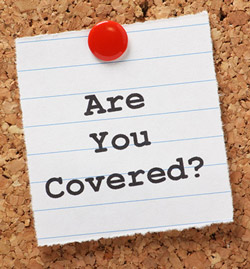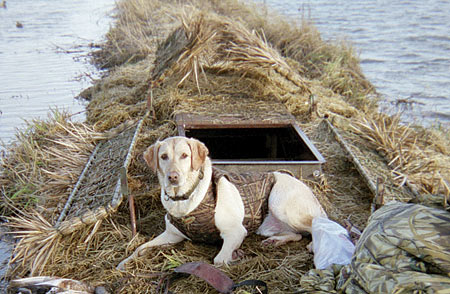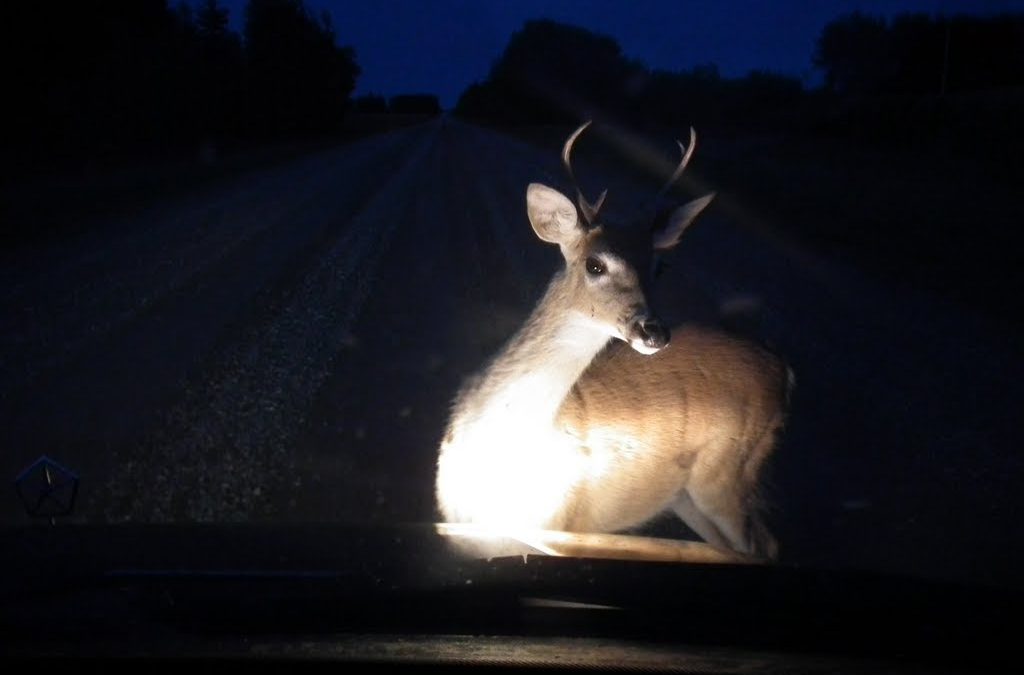
by Flagship Staff | Dec 22, 2015 | Blog
Part of growing up is recognizing and fulfilling personal goals and securing a stable lifestyle that meets your needs and the needs of your potential or growing family. Getting a job, buying a car, and purchasing a house are often milestones you’ll reach and there are many reasons why you should protect your home, car, and personal possessions with insurance coverage.
Insurance will provide you with the protection you need, but many people aren’t sure where to start and how to choose the right type of insurance for their individual needs. Rest assured; feeling overwhelmed is completely normal.
If you need help navigating the world of insurance, start with the basics. Here are five tips you should consider:
1.Understand why insurance is important
Think of insurance as a way to manage risk. For a monthly fee, or premium, you enlist the expertise of an insurance agent to help you identify your potential risk and provide you with the right insurance coverage for certain expenses you could incur if you suffer a loss. Here are a few examples of insurance you should consider at various milestones in your life:
Car insurance covers repairs, medical costs, and legal expenses if you’re involved in a collision.
Home insurance is required by mortgage lenders to verity your home is protected, and provides you with coverage if your home is damaged by such things as fire, wind, or hail.
Business insurance protects the valuable assets of your business.
Identity theft protection provides access to comprehensive identity protection services.
Umbrella insurance provides coverage where your basic Home and Highway® coverage ends by giving you a large additional layer of liability insurance.
2.Do your research and brush up on your insurance vocabulary
Just like any job interview, it’s important to familiarize yourself with industry terminology and have some knowledge of insurance before engaging in a discussion. Do some research on insurance agents in your area, recommended insurance companies, and key terminology that may apply to you and your current life situation.
3.Determine what kind of coverage you need
While it’s your agent’s job to recommend the best insurance for your expressed needs, it’s a good idea to bring a general outline of what you think you’ll need to your initial meeting. For example, if you’re a homeowner, you might look into homeowners insurance, flood insurance, and insurance for your personal possessions.
If you own a business, you might consider business insurance, identity theft coverage, and workers’ compensation insurance, to name a few.
Think about your insurance needs in advance so you can accurately express what types of protection you may need.
4.Find an insurance provider to meet your needs
One of the key considerations in selecting appropriate insurance coverage is choosing a company and agent to help you. It’s important, however, to first understand the difference between an independent agent and a captive agent.
Captive agents represent one insurance company and offer only that company’s policies. Independent agents, on the other hand, have no exclusive relationship with any one insurance company. Independent agents offer a wide range of products from multiple insurance companies and are able to offer guidance on a variety of products, coverage options, and prices. Independent agents don’t work for one particular insurance company; instead, they work for you.
5.Find the right policy
Meeting with a knowledgeable insurance agent is the first step in helping you find the right policy for your needs. Once you establish what your coverage needs are and identify the level of protection you need, your insurance agent should be able to provide you with a comprehensive policy recommendation.
You should meet with your agent each year to review changes in your protection needs and to alter your policy to reflect changes in your home, auto, or family life.

by Flagship Staff | Dec 14, 2015 | Blog
As the hustle and bustle of the holiday season approaches, people begin visiting local retailers looking for that good deal or special gift. Others may choose to avoid the crowds and shop online.
Shopping online is so convenient because you never have to leave the comfort of your own home. I spent many Black Fridays out in the cold waiting in line, but now we can walk to our computer with a cup of coffee and shop until our hearts content.
Today, online shopping is a multibillion-dollar industry. However, with the convenience of online shopping comes the potential for identity theft. Here are some tips to keep you safe while shopping online this holiday season.
Online Holiday Safety Tips
1.Be leery of public Wi-Fi. If you’re like me, when you’re out and see you have access to free public Wi-Fi, you think, “Yes! I can check out sport scores or catch up on the news free of charge, saving my data.” However, if you plan to shop online, avoid public Wi-Fi and use your cellular data instead.
2.Make sure your antivirus software is up to date. Unless your antivirus software is set for automatic updates, it may be outdated. Before you begin your online shopping this holiday season, make sure your antivirus software is up to date. Check to see when your software was last updated. If a significant amount of time has passed, do a manual download to get it up to date.
3.Watch out for email offers. If your inbox becomes inundated with email offers that seem too good to be true, they probably are. Safety experts recommend visiting the retailer’s website to find deals. Email offers with links could be a phishing scam run by hackers.
4.Do your homework. If you’re ordering from an online retailer for the first time and aren’t familiar with them, do your homework. Look for reviews from other shoppers to see how their online shopping experience was. If you see poor ratings, it’s probably wise to stay away no matter how good the deal is.
5.Frequently review your accounts. It’s always wise to review your accounts on a regular basis. However, during the holiday shopping season, it’s a good idea to review them more frequently. Online accounts allow us to see transactions up to the minute. If you see something strange, contact your bank or credit card company immediately.
6.Cold hard cash. If you’re like me, you have more receipts in your wallet than cash. However, if you want to protect yourself from identity theft this holiday season, consider withdrawing money from your local bank and using cash at local retailers for your holiday purchases.
7.Never share personal information. When buying online, retailers don’t need personal Information, such as date of birth or your social security number. If an online site is asking for this information, leave it immediately. Also, don’t save credit/debit card information on a retailer’s website. Lastly, when you’re finished making a purchase, remember to logout.
8.Create a strong password. To create a strong password, consider using a method or scheme that’s easy for you to remember but hard for others to guess. To learn more, check out the blog post from earlier this year: How to create a password that’s easy to remember but hard to guess
by Flagship Staff | Dec 8, 2015 | Blog
Retailers love this time of year when consumers venture out in droves to do their Christmas shopping. This time period can make or break their entire year.
For the rest of us, increased shopping means more congestion on our roadways and in the store parking lots. This increased congestion can lead to frustration, aggravation, and fender benders. In addition, the weather can wreak havoc on already-crowded parking lots, resulting in slips and falls and difficulty pushing a shopping cart or stroller.
Here are some safety tips to keep in mind as you venture out this holiday season to find that perfect gift.
1.Park further away. If your family is like mine, they’re always telling me to find the closest parking spot, and if I don’t, I hear about it. However, during this congested time of year, it may be wise to park further away from the store. If you do this: Backing out will be easier because there will be less car and pedestrian traffic.
You may be able to avoid unwanted door dings.
There’s more space for you and your family to exit and enter the vehicle.
You can burn off a few extra calories which isn’t a bad thing this time of year.
2.Light it up. Many cars today come with daytime running lights. If your car doesn’t, turn on your headlights while in a parking lot or parking garage during the daylight hours. Turning your lights on makes it easier to be seen by other cars and pedestrians.
3.SUVs and minivans, oh my! If possible, be on the lookout for these vehicles. While you may find a close parking spot in between them, trying to back out after your shopping spree may be difficult.
4.Don’t rely solely on backup cameras. While backup cameras are a nice addition to cars, they only allow you to see what’s directly behind you. Before backing out, you should still turn your head to survey the area around you. If it’s clear, you can slowly back out, keeping an eye on the display. If you’re travelling with friends or family, I would encourage you to ask them to keep an eye out. If the parking spot in front of you opens up, pull through. Unfortunately, I know people who have backed into cars even with an audible alert and camera.
5.Pay attention to your surroundings. Before leaving your car or store, scan the area. Be on the lookout for anything that looks strange. In addition, keep an eye on the pavement. Watch for elevation changes or potholes that could cause you to slip and fall. If something doesn’t feel right, consider asking store staff or security for assistance. Lastly, take out the earbuds and avoid texting or trying to make a phone call until you’re safely in the store or your car. Distracted shoppers are easy targets.
6.Make eye contact. If you’re using a pedestrian crossing at your favorite mall, make eye contact with the driver to make sure they see you and are going to allow you to cross. Even though pedestrians have the right of way, never assume drivers see you. Since the weather is still somewhat mild, I have been biking to work. On the front of my bike, I have a bright headlight that also flashes. Every day I am amazed at the number of people who still don’t see me.
7.Inspect your car. Before getting in your car, take a peak in the back seat to make sure a stranger isn’t waiting for you.
8.Wear appropriate clothing. Consider wearing lighter or reflective clothing and shoes with good traction.
9.Shop with a friend or family member. If your plan is to shop until you drop, consider taking somebody with you. Carrying many bags or packages can make you an easy target. In addition, consider leaving small children at home or taking someone with you to help them navigate safely through the parking lot. Trying to push a stroller, carrying packages, watching other kids and looking for car keys can be difficult and dangerous.
If you’re involved in a car accident in a parking lot and police aren’t contacted, be sure to gather as much information as possible, including the name, phone number, address, and insurance information of the other driver, and the color, type and license plate number of the vehicle(s). If there are witnesses, get their contact information, as well. And take photos, if possible, to avoid fraudulent claims later on.

by Flagship Staff | Nov 2, 2015 | Blog

Fall is a nice time of year in the Midwest. Fall sports are back, trees change colors, and after a hot summer, the cooler temperatures feel nice. It’s also the time of year when hunters begin venturing into the woods.
According to the Association of Fish and Wildlife Agencies, more than 87 million Americans hunt, fish, and enjoy wildlife-related recreation annually. Combined, these activities generate more than $120 billion for the U.S. economy and support almost three million jobs.
Whether you’re a gun collector, sport-shooting enthusiast, or hunter, here are some safety tips to keep yourself and others safe.
1. Communication is key.
Whether or not you own a gun, talking to your kids about gun safety is an important discussion. You never know what they may find at a friend’s house.
If you’re hunting with family or friends, discuss the layout of the land and have a thorough understanding of where each person will be.
If you’re venturing into the woods, tell family or friends where you’re going and when you’ll be home.
If visiting your local gun range, understand their rules and abide by them.
2. Store guns and ammunition in separate locked cabinets. Too often, we hear about accidental shootings. What you think is a good hiding spot probably isn’t. Kids are inquisitive and can find things you’d least expect them to find. Store the keys for your gun cabinets in a safe place. Labeling keys for a gun cabinet and leaving them in a common area of your home defeats the purpose of locked cabinets. Consider trigger locks.
3. Wear the appropriate clothing or gear. No matter what hobby you enjoy, wearing the appropriate clothing or gear is important. When shooting, wear eye and ear protection. If you enjoy walking in the woods, make sure you wear bright clothing to make yourself more visible. If you’re hunting from a tree stand, consider a safety harness.
Maintain your gear/hunting equipment properly by inspecting it after each use. If it needs repair, contact a professional.
4. Pack a first aid kit. Create a small kit specifically for you. My dad is allergic to bee stings, so he carried an EpiPen® when he hunted. If you suffer from an occasional migraine and have prescription medicine, pack that, as well.
5. Be aware of your surroundings. Identify where other hunters are and know what your target is before shooting. Find out where local medical services are located.
6. Ask permission. Just because you live near the woods doesn’t mean you can hunt in the woods. Always ask permission from landowners before hunting on their land since it can create many liability exposures for them. If you talk to the landowner beforehand, he/she can keep track of who’s hunting on the land and share any safety tips specific to the property. The last thing you want is a heated confrontation in the woods.
7. Contact your local DNR. Many states require hunter safety courses.

by Flagship Staff | Oct 29, 2015 | Blog
Its Deer Season – Set Your Sights on Safety

According to the National Highway Safety Administration, there are about 1.5 million deer-related auto accidents each year. Most of those occur in October and November, which is mating season for the animals. Deer tend to travel in herds, so if you see one, lookout for more that may follow.
* Keep an eye out for deer signs-they are placed at known deer-crossing areas. Reduce your speed when you see a sign.
* Animals tend to be active during dusk and dawn so be extra-conscious during these times. Stay cautious and watch your speed.
* Make sure your headlights are in working order to ensure you see well at night. Using high beams can help you spot wildlife but be considerate of other drivers when using them.
* Stay focused while driving. Do not text, talk on your phone or allow passengers to distract you.
* Always wear your seat belt. This won’t prevent a collision but it can save your life depending on the severity of the accident.








